Search
Did you mean: Derbent?
Search Results
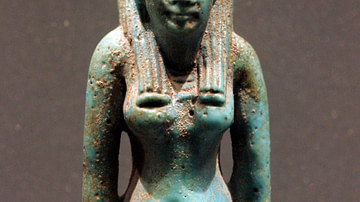
Definition
Nephthys
Nephthys was one of the original five gods of ancient Egypt born of the union of Geb (earth) and Nut (sky) after the creation of the world. She was the fourth born after Osiris, Isis, and Set and was the older sister of Horus (usually referred...

Definition
Ancient Persian Mythology
The mythology of ancient Persia originally developed in the region known as Greater Iran (the Caucasus, Central Asia, South Asia, and West Asia). The Persians were initially part of a migratory people who referred to themselves as Aryan...
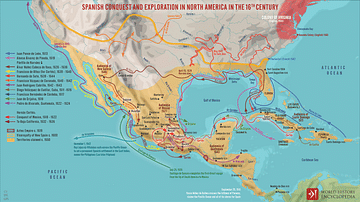
Definition
The Conquest of New Spain
The Conquest of New Spain by Bernal Díaz del Castillo (1492 to c. 1580) is an account written in 1568 of the early Spanish colonization of Mesoamerica, specifically the conquest of the Aztec civilization in Mexico from 1519 to 1521 when Díaz...
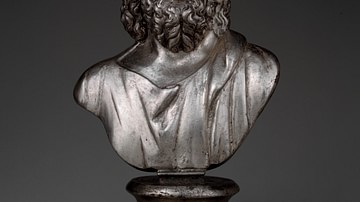
Definition
Serapis
Serapis is a Graeco-Egyptian god of the Ptolemaic Period (323-30 BCE) of Egypt developed by the monarch Ptolemy I Soter (r. 305-282 BCE) as part of his vision to unite his Egyptian and Greek subjects. Serapis’ cult later spread throughout...

Definition
Ryujin
Ryujin (aka Ryu-o) is the dragon king, sea god, and master of serpents in Japanese mythology. With his magic jewels he is responsible for the tides, and he represents both the perils and bounty of the sea and so was especially relevant to...

Definition
Ahriman
Ahriman is the evil spirit in Early Iranian Religion, Zoroastrianism, and Zorvanism, Lord of Darkness and Chaos, and the source of human confusion, disappointment, and strife. He is also known as Angra Mainyu (evil spirit or dark spirit...
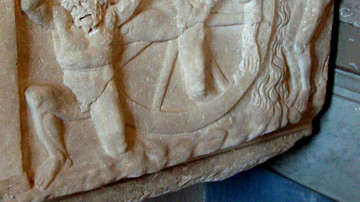
Definition
Tartarus
In Greek mythology, Tartarus was the lowest point of the universe, below the underworld but separate from it. Tartarus is best known from Hesiod's Theogony as one of the first beings to come into existence in the universe and also as the...
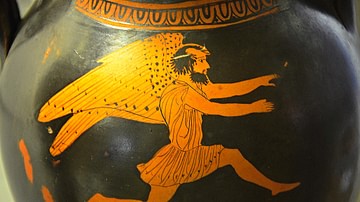
Definition
Hyperborea
In Greek mythology, Hyperborea was the land located to the far north of the known world and it was so remote it was considered even beyond the North Wind. There a legendary race known as the Hyperboreans lived and worshipped the sun god Apollo...
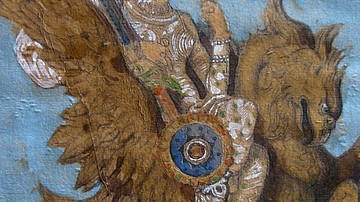
Definition
Chitrali Mythology
Chitrali mythology developed in the region of Chitral, the tallest portions of the Hindu Kush mountains, where the Chitrali people, at the juncture of South, Central, West, and East Asia, were exposed to many external cultural influences...
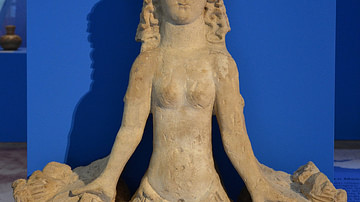
Definition
Scythian Religion
Scythian religion appears to be an amalgam of belief in a pantheon of gods grafted to more ancient animal reverence and shamanistic practice. According to their burial finds, the Scythians appear to have had a deep affinity with the animals...